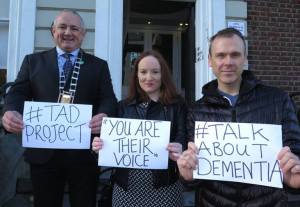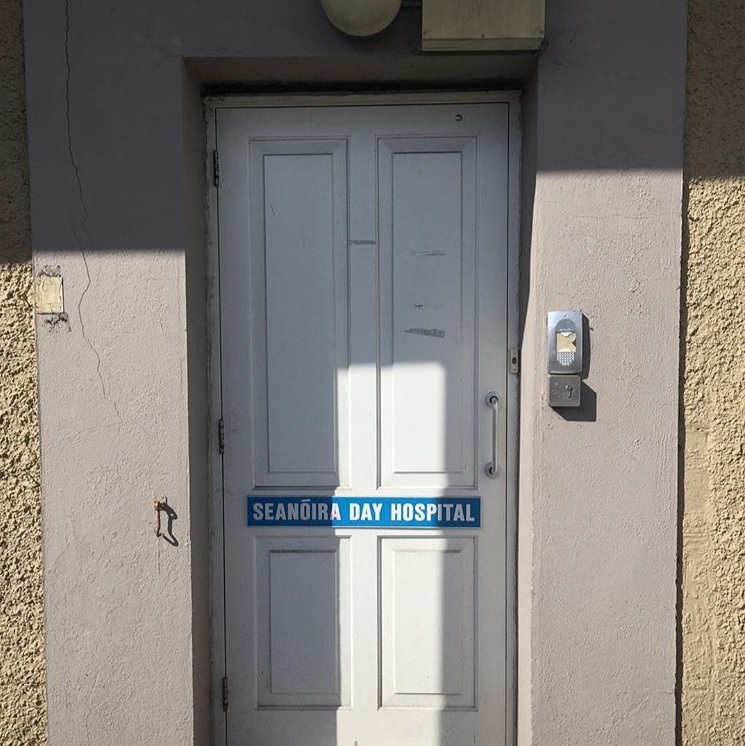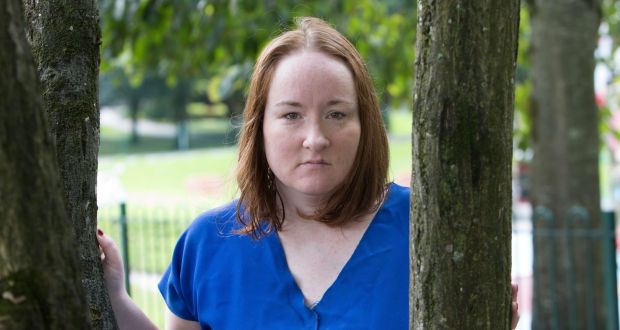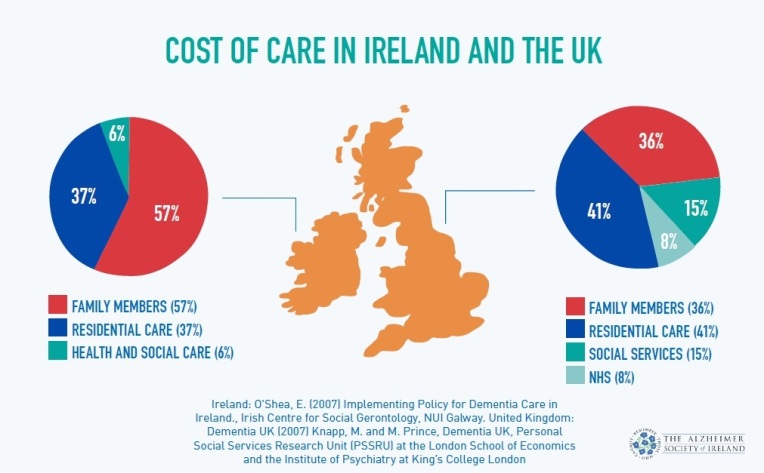There is someone I want you to hear before you hear me. A voice that never failed to command attention. The voice of my father Tony McMahon.
Dad was a sports broadcaster on local radio for 27 years and his specialist subject was horse racing. Each year, he covered the Cheltenham Festival, each year he picked his choice for the biggest race of the week – the Gold Cup. For the third consecutive year, he tipped the Michael Hourigan trained Beef or Salmon. Trust me, it won’t matter if horse-racing isn’t something you are familiar with. I just ask that you listen to him, his words. I want you to hear him.
Sadly for many punters, including myself – Beef or Salmon didn’t win the Gold Cup that year. As Dad used to always say winning races is an inexact science. As so many things are.
I didn’t know it for many years but this was one of the last times my father ever spoke on the radio. That was March 18 2005. Three weeks later he was diagnosed with Early Onset Alzheimer’s at the age of 58. He had Alzheimer’s when he gave this interview. No one knew.
When many people try to imagine what Alzheimer’s is, they don’t imagine this. They imagine people who are missing or losing parts of themselves; they imagine they have the ability to see it. To hear it. You don’t hear that when you hear Tony because you can’t. You can’t hear that Tony couldn’t read a clock. You can’t hear that Tony shoved unpaid bills into drawers at home because he didn’t know what to do with them any more. You can’t hear that he often trailed off mid-sentence, that he couldn’t make a cup of coffee. You can’t hear that he was running red lights or driving on the right-hand side of the road. And I’m sure you can’t hear that Tony knows there is something wrong, that something had been wrong for years. A few weeks later he told the doctor he had been experiencing memory problems for three years. You hear someone who challenges the myriad of common misconceptions associated with Alzheimer’s because you hear nothing.
My father voice was always heard whether he was on air or not. His voice was the mask Alzheimer’s hid behind. His vocabulary would inevitably and cruelly fail him as time went on but as long as he could shuck and jive with pals for pints after work on the first Friday of every month and croon a Frank Sinatra song at a sing-a-long he was heard. He was heard but those of us worried about what was happening to him were not heard for a long time.
My mother and I not only heard Dad, we saw because we lived with him. It was Tony’s actions that betrayed him, the behaviour of a confused person who seemed stuck that no mask could hide. We were so afraid, we found ourselves unable to speak about it to each other. The worse it got, the more isolated from each other we became. I was withdrawn and detached in college. The weight fell off my mother. Tony, perhaps out of fear or denial, refused to admit anything to us. He hid behind the person you just heard speak.
You know who first diagnosed my dad? The internet. Dr Google. I thought if we typed in his symptoms that we might get some idea of what was wrong. So I used keywords based on what I’d witnessed over the last year. Short-term memory loss. Confusion. Poor judgement. Unable to carry out everyday tasks. Quick as a flash Google had found sites for me. Unfortunately, every site was about Alzheimer’s. Three pages – nothing but Alzheimer’s. But of course Dad couldn’t have that, he’s only 58 – that’s an old person’s disease. I bought into this misconception and if I’m honest I knew why I did it all along. Not knowing was less scary than even considering it might be Alzheimer’s.
The first time I ever used the word Alzheimer’s was when I tried to tell my mother that I’d Googled his symptoms. I had to build up to that moment, and I didn’t look at her as I told her what I’d found online. She didn’t buy it either – she replied her grandmother had it in her late eighties and that was the response I had expected to hear. But the day his doctor requested to speak with her privately and asked her what she thought was wrong, she told him I had been looking things up. She said one word: “Alzheimer’s.” She didn’t look up when she heard the doctor tell her she was right. The first time someone heard my mother and told her she was right she was simply unable to look at them.
The night I learned of his diagnosis I was in college in Dublin and I was waiting for my mother to call and tell me what the doctor had told her. She waited until Dad went to bed. I don’t remember anything about that call other than my mother saying: “He has what you thought he had.” I knew what that meant. The word Alzheimer’s was never used during that conversation. I don’t know if it was a word we ever used in the early stage. If we spoke about it at all, we spoke in whispers and smiled at him as if there was nothing wrong.
Telling him would have destroyed him. It just seemed unconscionable to tell a man who valued all that he put into his brain that it would be taken away from him piece by piece. For those who mourn my father, they don’t just miss the man, the horse racing tips, the charm, the character, the sense of humour, the songs, that voice. They miss his mind.
Lonely is the only word to truthfully describe what it was like to be 19 and find out your parent had an illness you couldn’t talk about. I didn’t know how I was allowed to feel so I retreated. No one hugged me. No one knew what to say. I didn’t know what to say. College was over after that, my heart had left the night I learned Dad had Alzheimer’s. I had a new job to focus on, a newsreader in the radio station my father worked for. I had looked forward to partnering him on Sunday afternoons as a colleague but sadly it was not to be.
As hard as life became on this meandering path that took us deep into an undiscovered country those of us who loved my father realised we had a finite amount of time with him. We made everything of it. When I recall the hardest parts of our journey I balance them with the memories we made or that I was a part of. I remember our trip to Wales for the Heineken Cup final to see Munster beat Biarritz and lift the trophy. Dad always said he could die happy once he’d seen Munster win the Heineken Cup and luckily, my mother never took the credit card from him and we booked it before they got through to the final in 2006. When I took him to the cinema or a show he would sing along with the music and I just let him – it was worth it, even at the risk of being thrown out. I remember the day he called me to tell me I had a niece and her name was Fay. I remember the first time he held her after he whispered he was afraid he’d drop her. He never did. Every year my mother held a birthday party for him for the rest of his life. While he could he went off with his friends or former colleagues for coffee or to the races with his brothers. He lost the voice but he never lost the love of music and one could almost see a part of him sing as we played his favourite songs. Today, six years on after his passing he is remembered for the impact he had on so many lives and for the beautiful memories he left us. And for that voice.
My mother once said Alzheimer’s changed everything. It changed the trajectory of my life. It challenged my fear because I had no choice but to learn what it was and learn it’s language, so I could understand what was happening to Dad and more recently my grandmother who was diagnosed last year. Alzheimer’s changed me as a person, and sometimes I don’t know how to feel about that. Who might I have been if Dad was never diagnosed? Yet thirteen years on I don’t think so much about what I was lost. I think of what I was given. A voice. A voice that is finally heard.
















